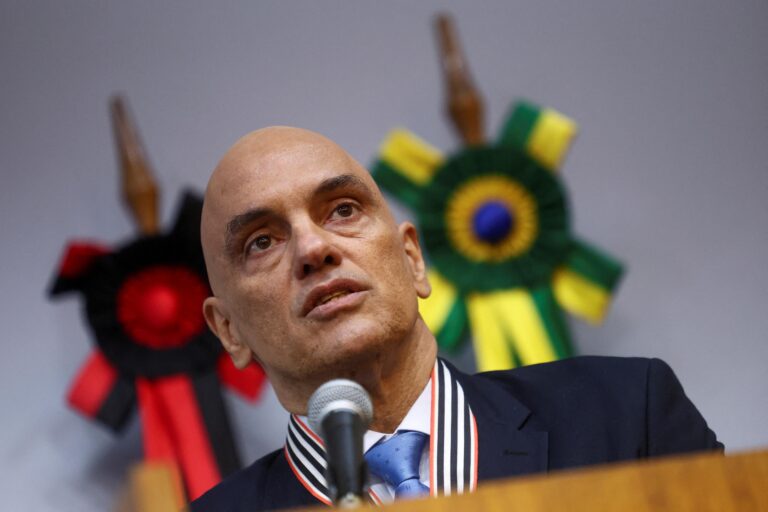A Brazilian judge has granted an injunction blocking the suspension of the country’s soy moratorium, a key environmental agreement aimed at preventing deforestation in the Amazon. The decision, reported by Reuters, marks a significant legal development in Brazil’s ongoing efforts to balance agricultural expansion with environmental conservation. The soy moratorium, which restricts the purchase of soybeans produced on recently deforested land, has been instrumental in curbing Amazon deforestation linked to soybean farming. This latest ruling underscores the judiciary’s role in enforcing environmental protections amid mounting pressures from the agribusiness sector.
Judge Blocks Suspension of Brazil Soy Moratorium Ensuring Continued Deforestation Controls
A recent ruling by a Brazilian federal judge has halted the suspension of the Soy Moratorium, a critical environmental agreement aimed at curbing deforestation in the Amazon rainforest. The decision reinforces ongoing controls that prevent soy farmers from purchasing land cleared after 2008, thereby maintaining an essential mechanism in the fight against illegal deforestation linked to agricultural expansion. This injunction protects one of the world’s largest tropical forest ecosystems, where soy cultivation is a major economic activity but has also contributed to environmental degradation. By keeping the moratorium active, the ruling ensures that the soy industry remains accountable and continues its commitments to sustainability and forest preservation.
The ruling addresses concerns raised by environmental groups and indigenous communities, who have long argued that suspending the moratorium would significantly accelerate deforestation rates. Key points emphasized in the judge’s decision include:
- Enforcement of deforestation prevention policies within soy supply chains
- Support for sustainable agriculture that balances economic growth with ecological protection
- Protection of indigenous territories threatened by agricultural encroachment
- Commitment from the agribusiness sector to adhere to environmental regulations
| Metric | Current Value |
|---|---|
| Amazon Deforestation Rate (2023) | 9,200 km² |
| Area Covered by Soy Moratorium | 63 million ha |
| Percentage of Soy Linked to Deforestation | Less than 1% |
| Estimated Economic Loss if Moratorium Suspended | $500 million/year |
Implications for Agricultural Sector and Environmental Advocacy in Brazil
The injunction issued by the Brazilian judiciary delivering a halt to the suspension of the soy moratorium signals a pivotal moment for the country’s agricultural sector. This ruling reinforces the commitment to sustainable farming practices by ensuring that soy producers cannot expand into recently deforested areas in the Amazon biome. For agribusiness stakeholders, this means increased scrutiny and the need to adhere strictly to environmental regulations, potentially influencing supply chain sourcing and export dynamics. The decision emphasizes the role of legal frameworks in balancing economic growth with environmental stewardship in one of the world’s leading soy exporters.
Environmental advocacy groups have hailed the injunction as a critical victory in the ongoing effort to curb deforestation and protect biodiversity across Brazil’s vast ecosystems. With the soy moratorium reinstated, advocates expect a renewed focus on sustainable land use and corporate accountability. Key implications include:
- Pressure on producers to maintain zero-deforestation commitments;
- Strengthened monitoring systems leveraging satellite imagery and on-ground inspections;
- Heightened international attention on Brazil’s role in sustainable agriculture;
- Opportunities for partnerships between farmers, government, and NGOs to promote responsible soy production.
| Sector Impact | Short-term Effect | Long-term Outlook |
|---|---|---|
| Agricultural Producers | Compliance costs increase | Market access secured through sustainability |
| Exporters | Temporary trade adjustments | Improved reputation globally |
| Environmental Groups | Momentum for advocacy | Enhanced conservation efforts |
Recommendations for Stakeholders to Navigate Regulatory Uncertainty and Promote Sustainable Practices
In an environment marked by regulatory flux, stakeholders must adopt a proactive stance to safeguard the integrity of sustainability efforts within the soy supply chain. This includes fostering transparent communication channels among producers, regulators, and environmental watchdogs to ensure alignment on compliance expectations. Engaging in collaborative platforms can help mitigate risks associated with sudden legal shifts and reinforce commitment to deforestation-free commitments.
Moreover, implementing adaptive management strategies is essential to respond swiftly to evolving policies. Stakeholders should prioritize:
- Robust monitoring systems that leverage satellite imagery and blockchain technology for traceability;
- Investment in sustainable farming practices that reduce environmental impact without compromising yield;
- Advocacy for clear, consistent regulations that balance economic and ecological interests;
- Capacity-building initiatives that empower smallholders to comply effectively with moratorium requirements.
| Stakeholder | Key Action | Expected Outcome | ||||||||
|---|---|---|---|---|---|---|---|---|---|---|
| Soy Producers | Adopt sustainable land management | Reduced deforestation | ||||||||
| Regulators | Establish transparent rules | Greater legal certainty | ||||||||
| NGOs & Watchdogs |
| Stakeholder | Key Action | Expected Outcome |
|---|---|---|
| Soy Producers | Adopt sustainable land management | Reduced deforestation |
| Regulators | Establish transparent rules | Greater legal certainty |
NGOs & Watchdogs
Future OutlookThe court’s injunction halting the suspension of the soy moratorium marks a crucial victory for environmental advocates striving to curb deforestation in the Amazon. As stakeholders await further legal proceedings, the decision underscores ongoing tensions between agribusiness interests and conservation efforts in Brazil’s pivotal agricultural sector. Reuters will continue to monitor developments in this evolving story. |




